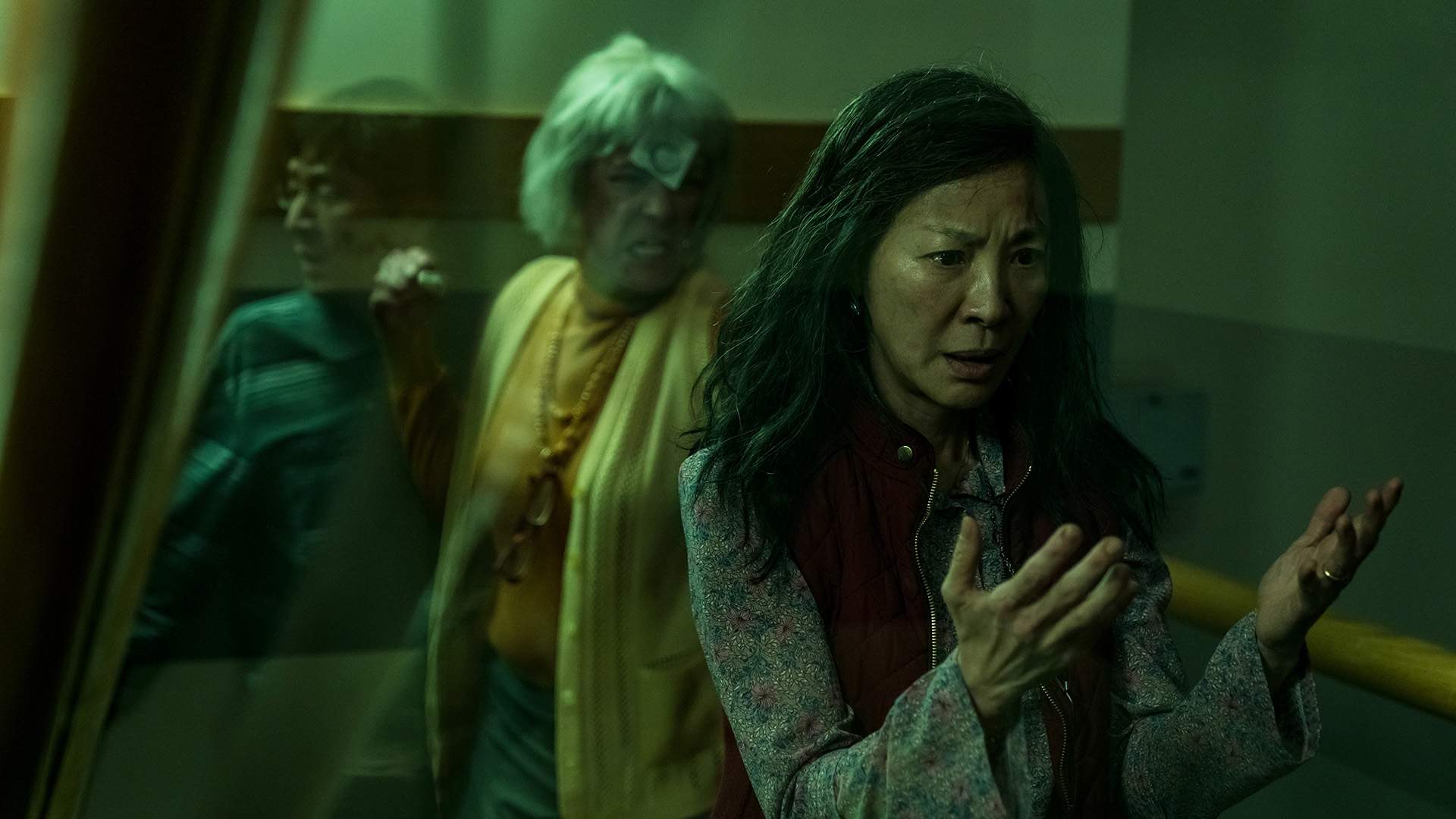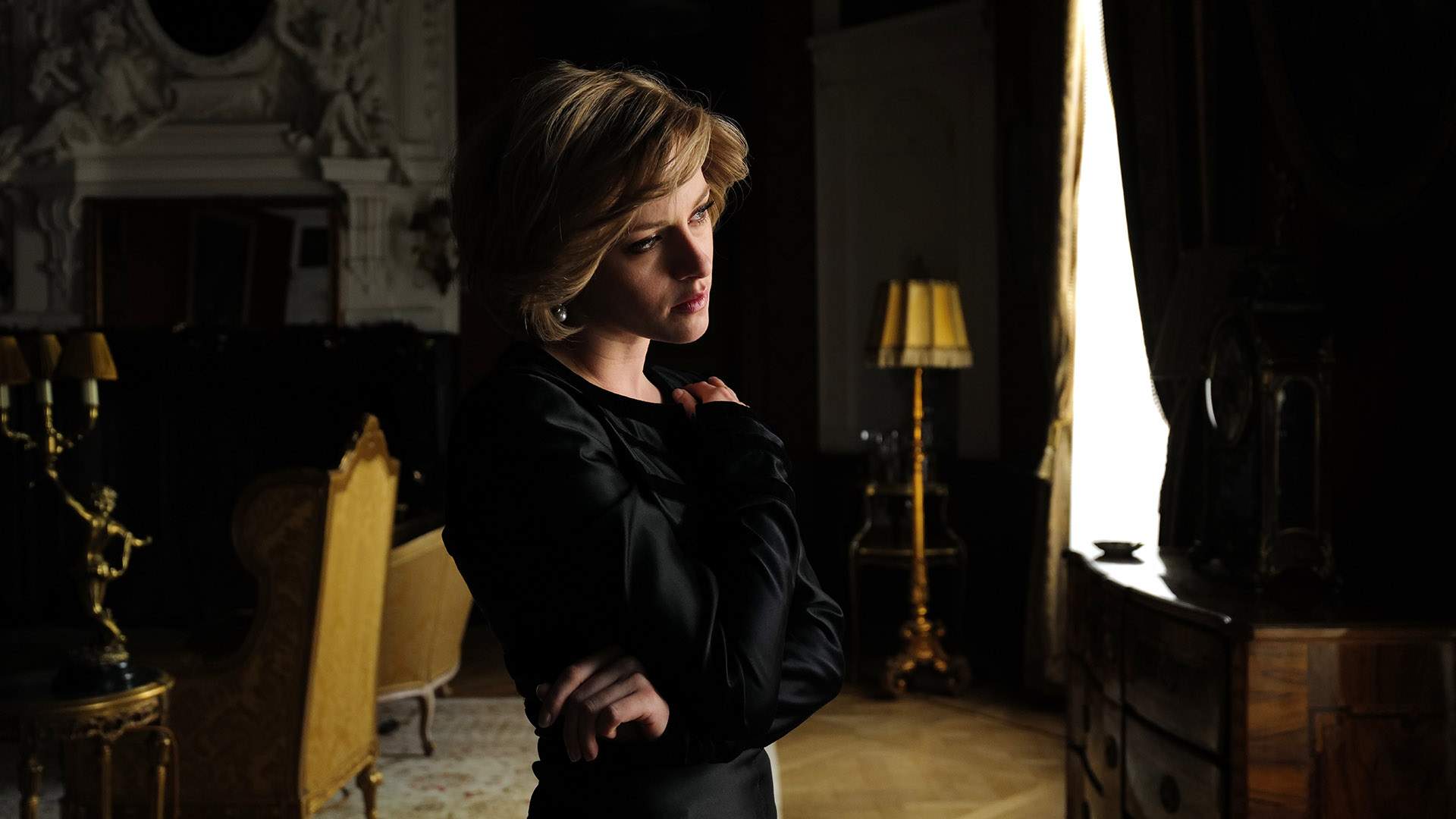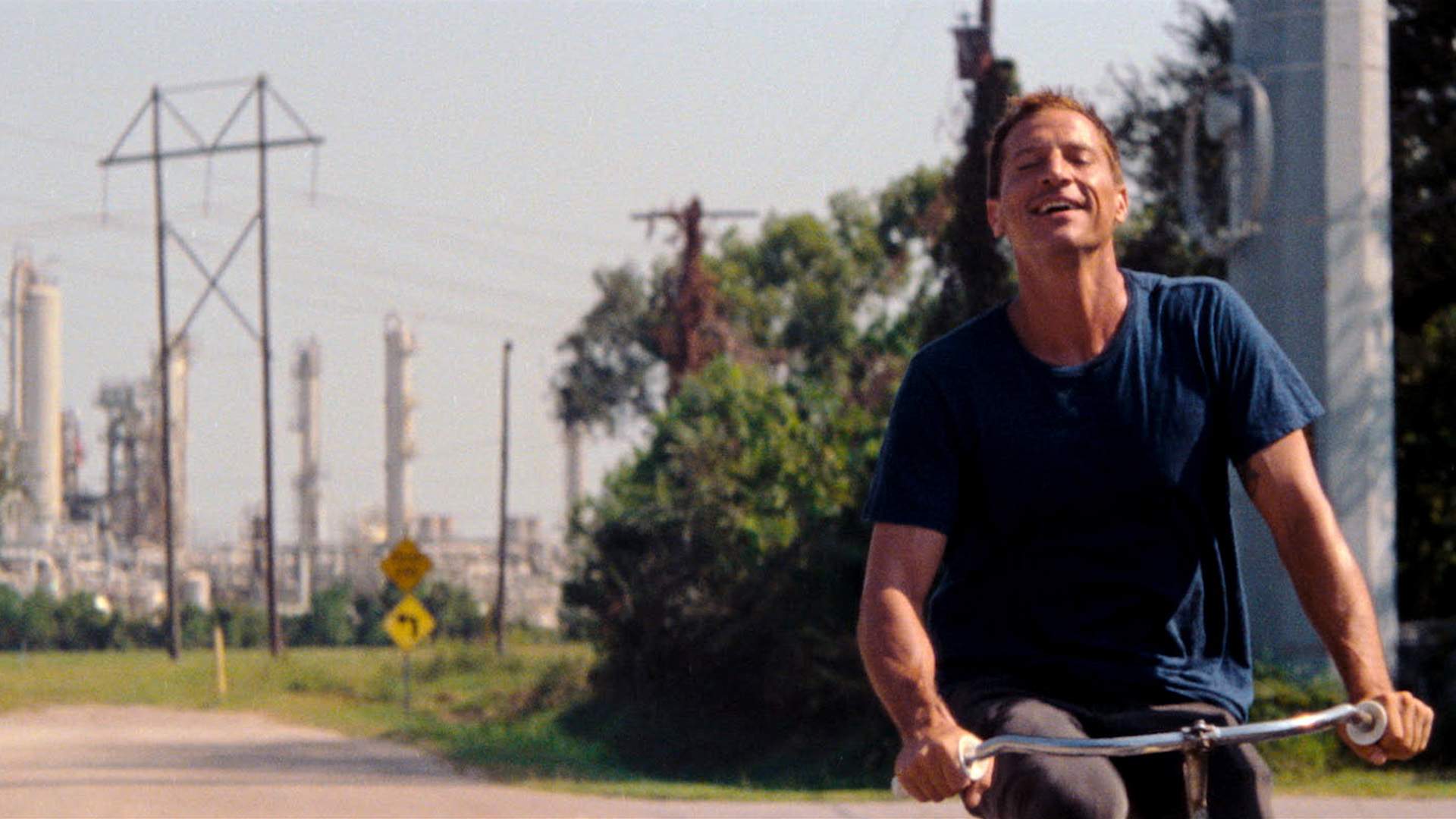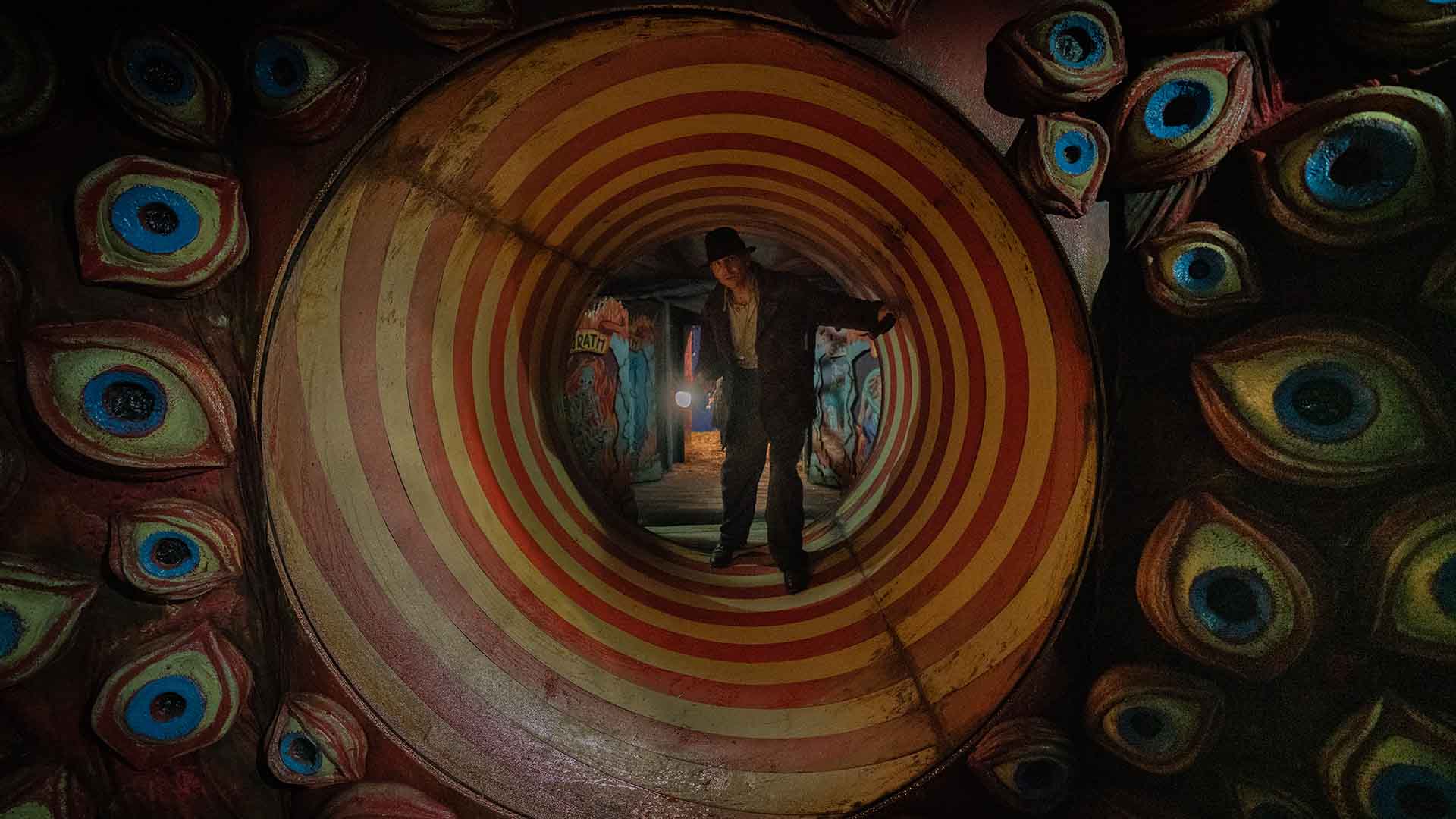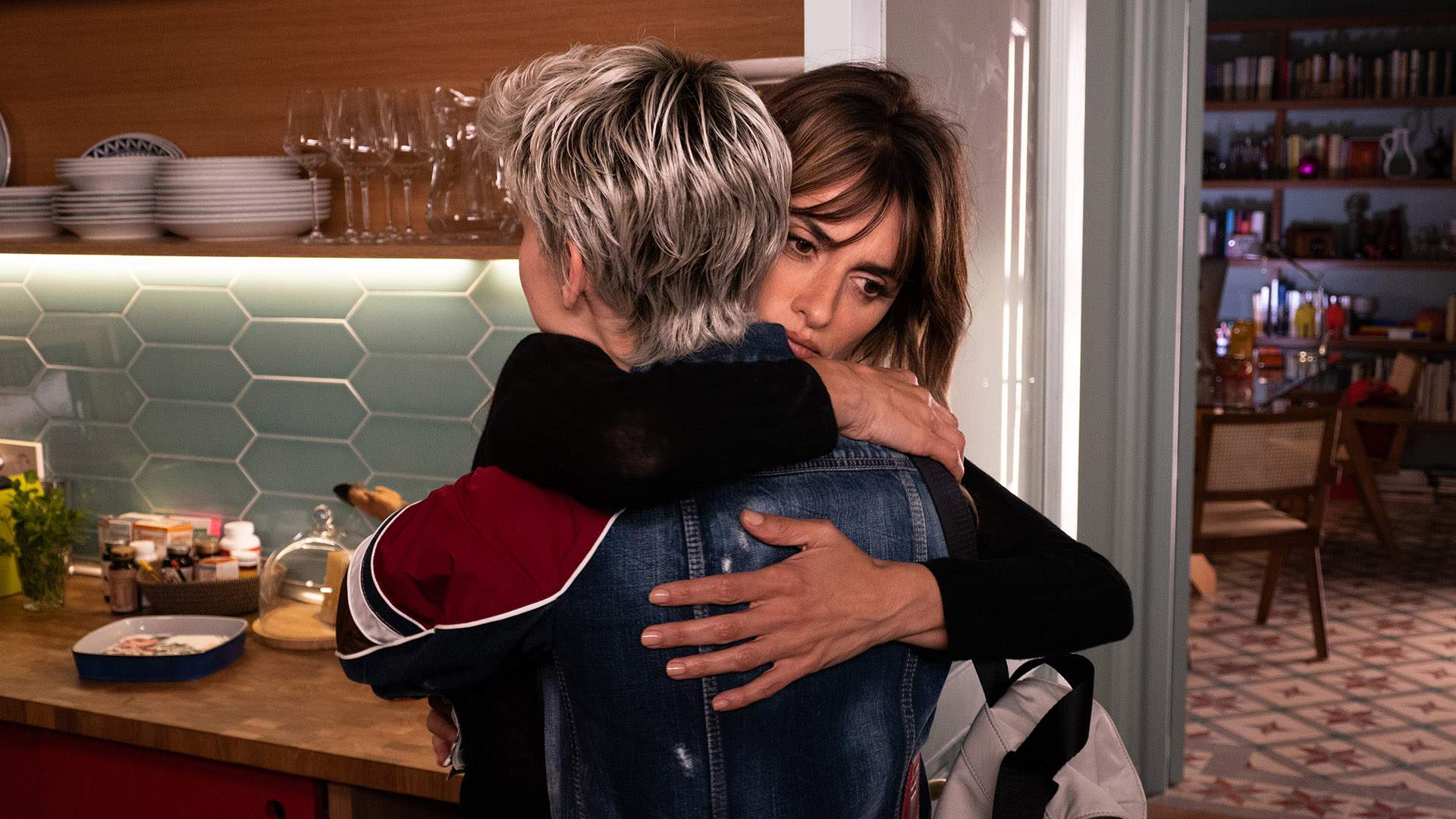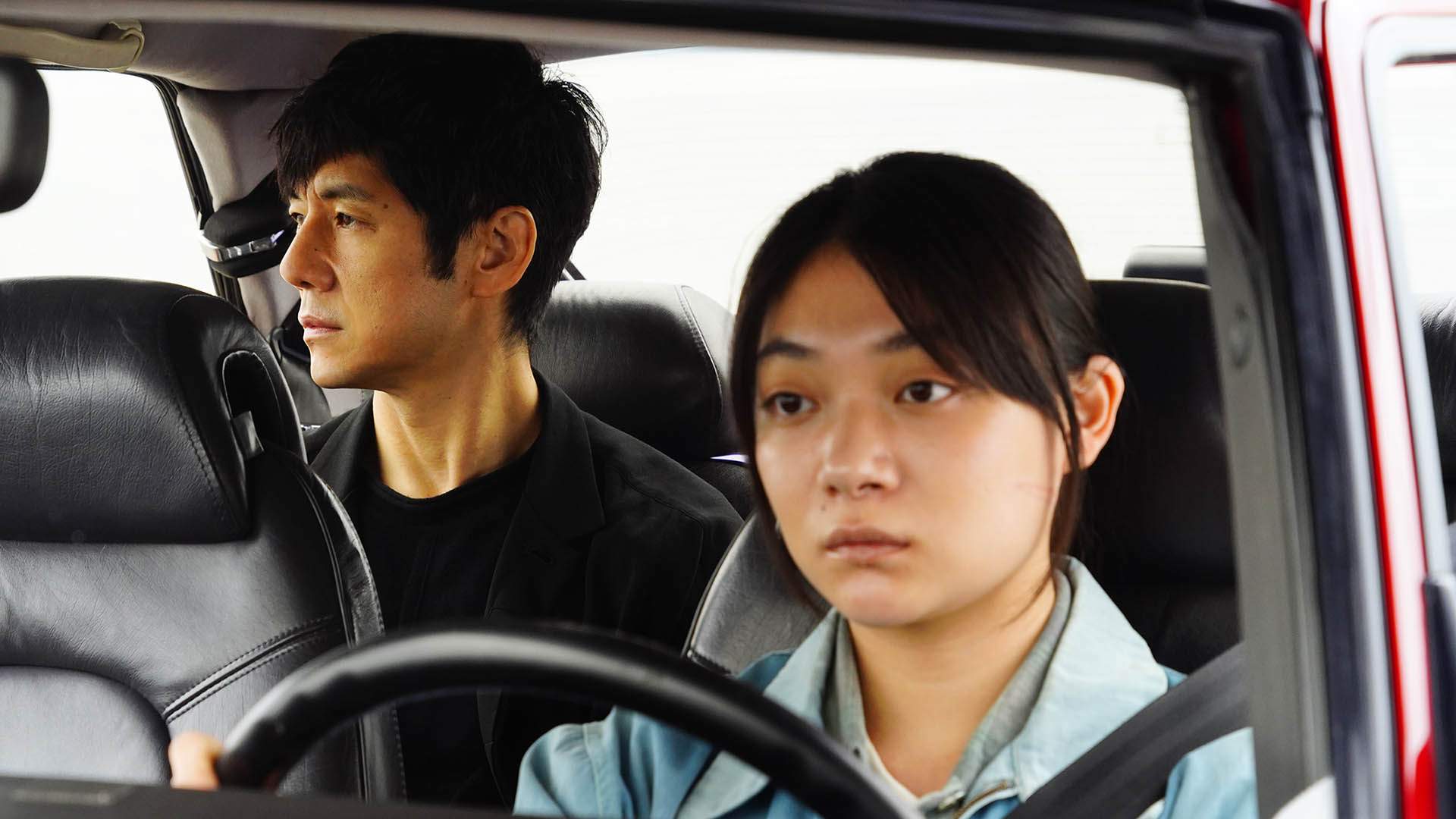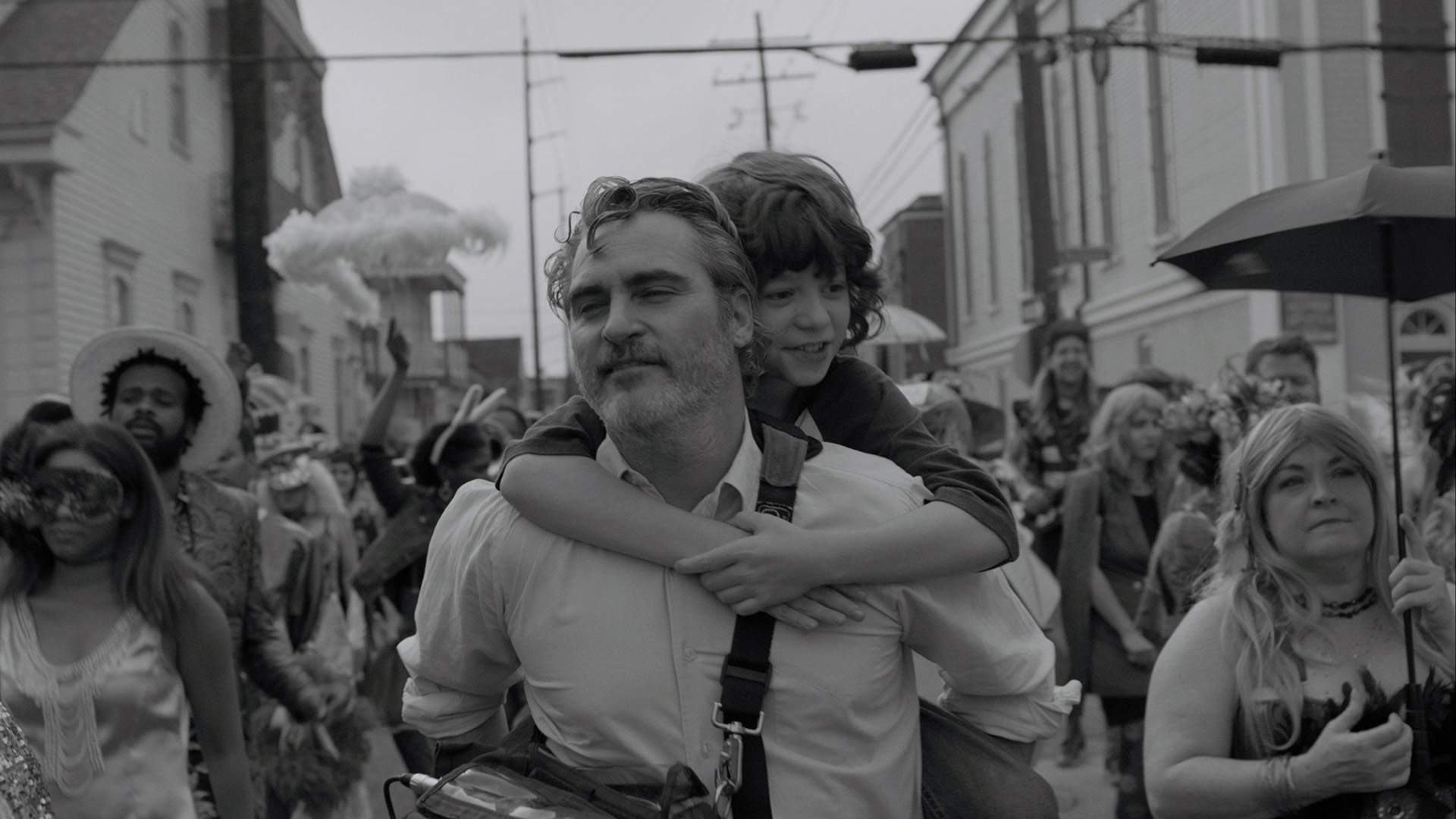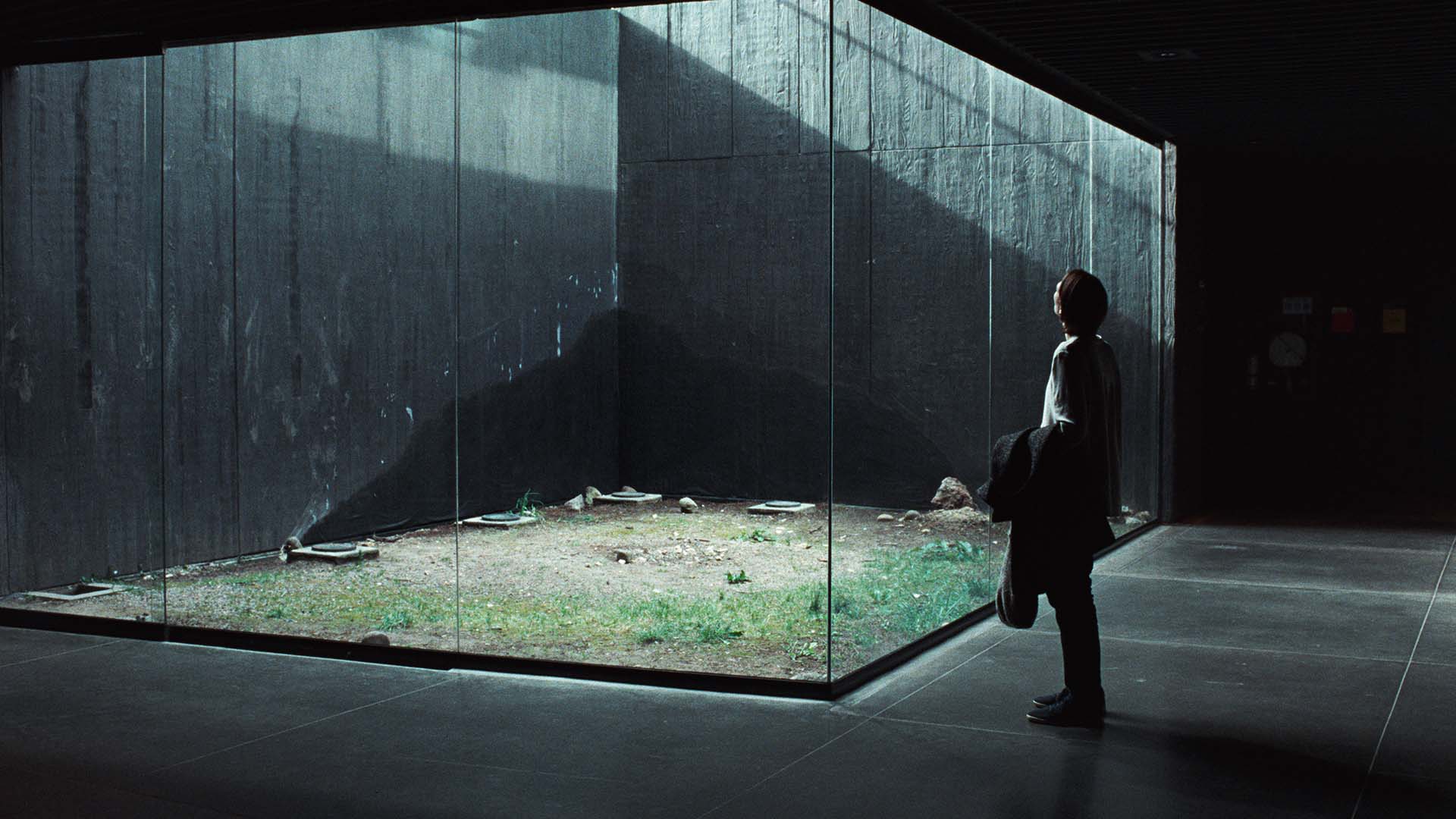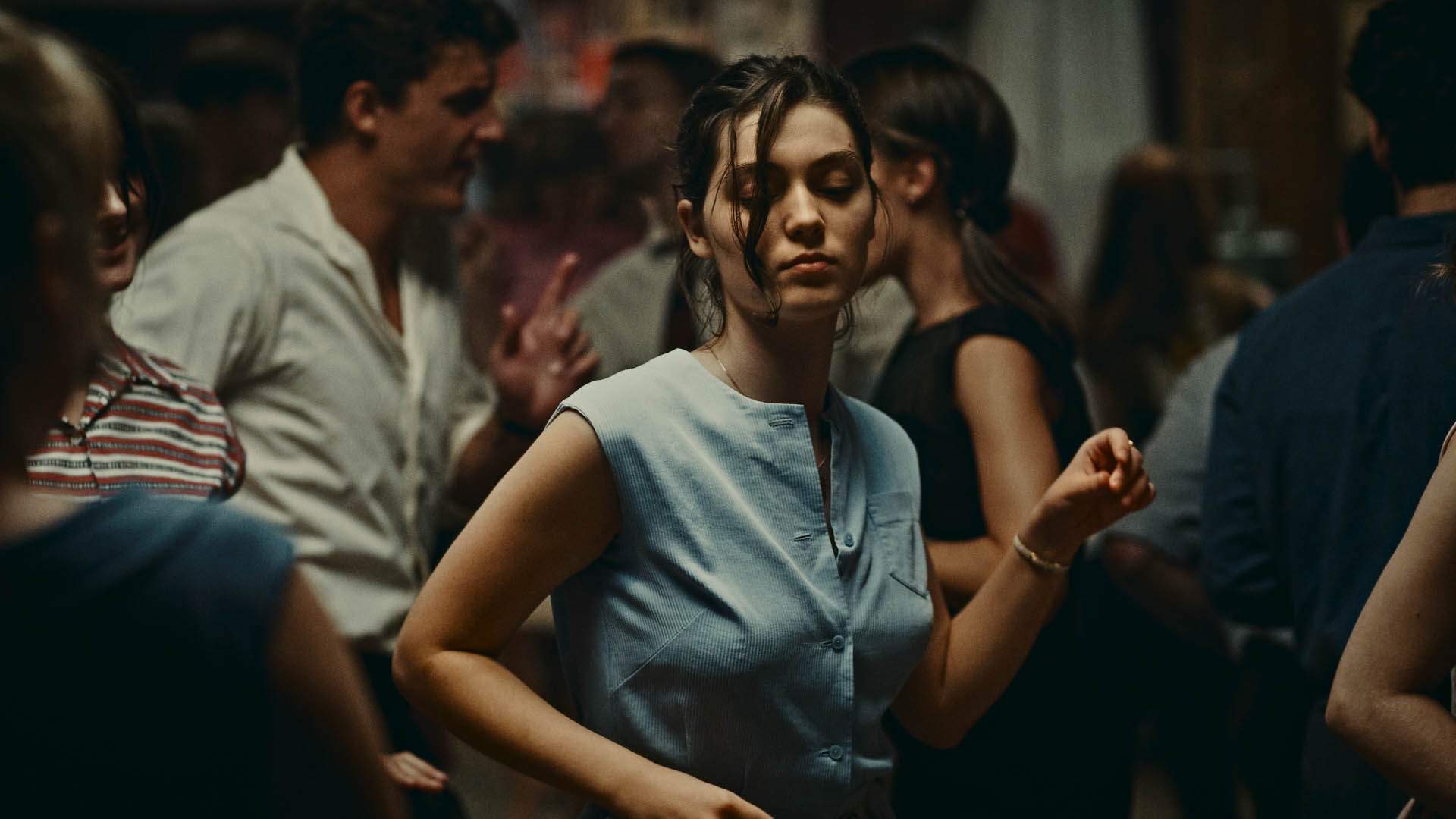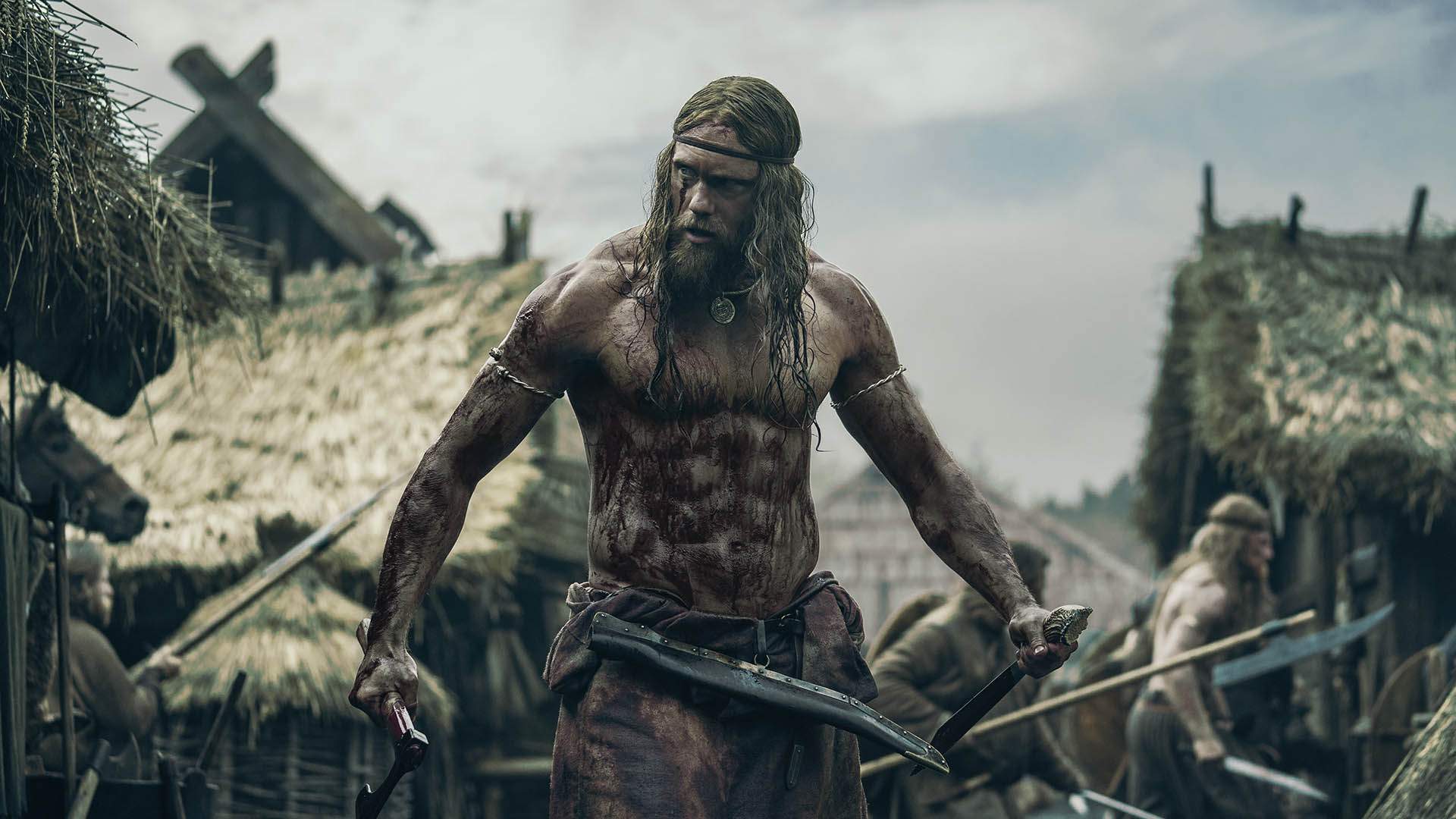The 15 Best Films of 2022 So Far
Big screens Down Under have been bustling with excellent flicks across the first six months of 2022 — here's the best of the best.
There's a reason they call it movie magic: when the lights dim, the projector starts flickering and cinematic dreams dance across the silver screen, a darkened theatre is one of the most enchanting places you could possibly be. Anything can happen in a film. Any fantasy can play out, any world can come to life and any chapter in history can return to the present — and in 2022 so far, in cinemas Down Under, all of this has occurred and more.
For anyone who's made a movie date with the biggest screen near them so far this year, 2022 has been exceptional — and, yes, it's only halfway through. It's been a top year for films about modes of transport, whether driving leisurely or feeling a need for speed. Actually, it's been notable for shoulder rides in movies, too. It's been ace for jumps back into the past as well, including surveying famous figures and and peering at Vikings. It's also been phenomenal for flicks with a sci-fi spin, especially when time travel, multiverses and robotic futures have been involved.
The list goes on, spanning movies that debuted elsewhere last year but only made their way here this year, films that've already won gleaming accolades in the last awards cycle, blockbuster Bollywood behemoths and what's certain to be the biggest box-office hit of the year. Indeed, 2022 has been so packed with ace flicks at the cinema so far, even whittling the best of the best down to 15 was a tough task. Here are the results — aka the silver-screen releases from this year you need to see ASAP, or rewatch just as quickly if you've basked in their glory already.

DRIVE MY CAR
Inspired by Haruki Murakami's short story of the same name, Drive My Car's setup couldn't be simpler. Still recovering from a personal tragedy, actor and director Yusuke Kafuku (Hidetoshi Nishijima, Silent Tokyo) agrees to helm a stage version of Chekhov's Uncle Vanya in Hiroshima — but the company behind it insists on giving him a chauffeur for the duration of his stay. He declines, yet they contend it is mandatory for insurance and liability reasons, so Misaki (Toko Miura, Spaghetti Code Love) becomes a regular part of his working stint in the city. Friendship springs, slowly and gradually, but Murakami's name is one of the first signs that this won't follow a standard road. The other: Japanese filmmaker Ryûsuke Hamaguchi, who makes layered, thoughtful and probing reflections upon connection, as seen in his other efforts Happy Hour, Asako I & II and Wheel of Fortune and Fantasy.
Drive My Car doesn't hurry to its narrative destination, clocking in at a minute shy of three hours, but it's a patient, engrossing and rewarding trip. It's a gorgeously shot and affectingly performed one, too, whether taking to the road, spending time with its central pair, or chronicling Yusuke's involving auditions and rehearsals. Another thing that Hamaguchi does disarmingly well: ponder possibilities and acceptance, two notions that echo through both Yusuke and Misaki's tales, and resonate with that always-winning combination of specificity and universality. Drive My Car is intimate and detailed about every element of its on-screen voyage and its character studies, and also a road map to soulful, relatable truths.
Read our full review.

PETITE MAMAN
Forget the "find someone who looks at you like…" meme. That's great advice in general, but it's mandatory if you've ever seen a film by Céline Sciamma. No one peers at on-screen characters with as much affection, attention, emotion and empathy as the French director, with her talent for truly seeing into hearts and minds shining again in Petite Maman. In Sciamma's latest delicate and exquisite masterpiece after Tomboy, Girlhood and Portrait of a Lady on Fire, she follows eight-year-old Nelly (debutant Joséphine Sanz) on a trip to her mother's (Nina Meurisse, Camille) childhood home. Nelly's grandmother (Margot Abascal, The Sower) has just died, and the house needs packing up. While her parents work, the curious child roves around the surrounding woods — and discovers Marion (fellow newcomer Gabrielle Sanz), who could be her twin.
Sciamma is exceptionally talented at many things, creating richly detailed and intimately textured cinematic worlds high among them. She doesn't build franchises or big fantasy realms, but surveys faces, spaces, thoughts and feelings — exploring them like the entire universes they are. That approach pulsates through every frame of Petite Maman like a heartbeat. The film itself resembles a gentle but soul-replenishing breeze in its rustic look and serene pacing, but it thrums with emotion and insight at every moment. It's a modern-day fairy tale, too, complete with a glorious twist, with this radiant, moving, smart and perceptive movie musing deeply on mothers, daughters and the ties that bind.
Read our full review.

RED ROCKET
It might sound crazy, but it ain't no lie: Red Rocket's *NSYNC needle drops, the cost of which likely almost eclipsed the rest of the film's budget, provide a sensational mix of movie music moments in an all-round sensational picture. A portrait of an ex-porn star's knotty homecoming to the oil-and-gas hub that is Texas City, the feature only actually includes one song by the Justin Timberlake-fronted late-90s/early-00s boyband, but it makes the most of it. That tune is 'Bye Bye Bye', and it's a doozy. With its instantly recognisable blend of synth and violins, it first kicks in as the film itself does, and as the bruised face of Mikey Saber (Simon Rex, Scary Movie 3, 4 and 5) peers out of a bus window en route from Los Angeles. Its lyrics — "I'm doing this tonight, you're probably gonna start a fight, I know this can't be right" — couldn't fit the situation better. The infectiously catchy vibe couldn't be more perfect as well, and nor could the contrast that all those upbeat sounds have always had with the track's words.
As he demonstrates with every film, Red Rocket writer/director/editor Sean Baker is one of the best and shrewdest filmmakers working today — one of the most perceptive helmers taking slice-of-life looks at American existence on the margins, too. His latest movie joins Starlet, Tangerine and The Florida Project on a resume that just keeps impressing, but there's an edge here born of open recognition that Mikey is no one's hero. He's a narcissist, sociopath and self-aggrandiser who knows how to talk his way into anything, claim success from anyone else's wins and blame the world for all his own woes. He's someone that everyone in his orbit can't take no more and wants to see out that door, as if *NSYNC's now-22-year-old lyrics were specifically penned about him. He's also a charismatic charmer who draws people in like a whirlwind. He's the beat and the words of 'Bye Bye Bye' come to life, in fact, even if the song wasn't originally in Red Rocket's script.
Read our full review.

EVERYTHING EVERYWHERE ALL AT ONCE
Imagine living in a universe where Michelle Yeoh isn't the wuxia superstar she is. No, no one should want to dwell in that reality. Now, envisage a world where everyone has hot dogs for fingers, including the Crouching Tiger, Hidden Dragon icon. Next, picture another where Ratatouille is real, but with raccoons. Then, conjure up a sparse realm where life only exists in sentient rocks. An alternative to this onslaught of pondering: watching Everything Everywhere All At Once, which throws all of the above at the screen and a helluva lot more. Yes, its title is marvellously appropriate. Written and directed by the Daniels, aka Swiss Army Man's Daniel Kwan and Daniel Scheinert, this multiverse-hopping wonder is a funhouse of a film that just keeps spinning through wild and wacky ideas. Instead of asking "what if Daniel Radcliffe was a farting corpse that could be used as a jet ski?" as their also-surreal debut flick did, the pair now muses on Yeoh, her place in the universe, and everyone else's along with her.
Although Yeoh doesn't play herself in Everything Everywhere All At Once, she is seen as herself; keep an eye out for red-carpet footage from her Crazy Rich Asians days. Such glitz and glamour isn't the norm for middle-aged Chinese American woman Evelyn Wang, her laundromat-owning character in the movie's main timeline, but it might've been if life had turned out differently. That's such a familiar train of thought — a resigned sigh we've all emitted, even if only when alone — and the Daniels use it as their foundation. Their film starts with Evelyn, her husband Waymond (Ke Huy Quan, Indiana Jones and the Temple of Doom's Short Round and The Goonies' Data) and a hectic time. Evelyn's dad (James Hong, Turning Red) is visiting from China, the Wangs' daughter Joy (Stephanie Hsu, Shang-Chi and the Legend of the Ten Rings) brings her girlfriend Becky (Tallie Medel, The Carnivores) home, and IRS inspector Deirdre Beaubeirdra (Jamie Lee Curtis, Halloween Kills) is conducting a punishing audit. Then Evelyn learns she's the only one who can save, well, everything, everywhere and everyone.
Read our full review.

AFTER YANG
What flickers in a robot's circuitry in its idle moments has fascinated the world for decades, famously so in Do Androids Dream of Electric Sheep?, Blade Runner and Blade Runner 2049. In writer/director/editor Kogonada's (TV series Pachinko) After Yang, one machine appears to long for everything humans do. The titular Yang (Justin H Min, The Umbrella Academy) was bought to give Kyra (Jodie Turner-Smith, Queen & Slim) and Jake's (Colin Farrell, The Batman) adopted Chinese daughter Mika (Malea Emma Tjandrawidjaja, iCarly) a technosapien brother, babysitter, companion and purveyor of "fun facts" about her heritage. He dotes amid his duties, perennially calm and loving, and clearly an essential part of the family. What concerns his wiring beyond his assigned tasks doesn't interest anyone, though, until he stops operating. Mika is distressed, and Kyra and Jake are merely inconvenienced initially, but the latter pledges to figure out how to fix Yang — which is where his desires factor in.
When a feature so easily recalls other films and television shows, and so emphatically — Ex Machina and Black Mirror also come to mind here — it isn't typically a positive sign. That isn't the case with After Yang. Adapting Alexander Weinstein's short story Saying Goodbye to Yang, Kogonada crafts a movie that resembles a dream for the overwhelming bulk of its running time — it's softly shot like one, and tightly to focus on interiors rather than backgrounds — and that makes it feel like a happily slumbering brain filtering through and reinterpreting its wide array of influences. Another picture that leaves an imprint: Kogonada's own Columbus, his 2017 wonder that also featured Haley Lu Richardson (The Edge of Seventeen), who pops up here as a friend of Yang's that Jake, Kyra and Mika know nothing about. It isn't the shared casting that lingers, but the look and mood and texture, plus the idea that what we see, what we choose to revel in aesthetically and what makes us tick mentally are intertwined; yes, even for androids.
Read our full review.

SPENCER
With two-plus decades as an actor to her name, Kristen Stewart hasn't spent her career as a candle in the wind. Her flame has both blazed and flickered since her first uncredited big-screen role in The Flintstones in Viva Rock Vegas but, by Elton John's definition, she's always known where to cling to. After jumping from child star to Twilight heroine and then one of the savviest talents of her generation, she's gleaned where to let her haunting gaze stare so piercingly that it lights up celluloid again and again, too. Spencer joins Stewart's resume after weighty parts in Clouds of Sils Maria, Personal Shopper, Certain Women and Seberg, and has her do something she's long done magnificently: let a world of pain and uncertainty seep quietly from her entire being. The new regal drama should do just that, of course, given its subject — but saying that director Pablo Larraín (Jackie, Ema) has cast his Diana well, pitch-perfect head tilt and all, is a royal understatement.
The year is 1991, the time is Christmas and the place is the Queen's (Stella Gonet, Breeders) Sandringham Estate, where the Windsors converge for the holidays (yes, Spencer is now prime seasonal viewing). As scripted by Peaky Blinders and Locked Down's Steven Knight, the choice of period puts Diana in one of the most precarious situations of her then decade-long married life, with her nuptials to Prince Charles (Jack Farthing, The Lost Daughter) turning into an "amicable separation" within 12 months. Spencer's focus is on three days, not all that defined the People's Princess' existence before or after, but she can't stop contemplating her past and future. The Sandringham grounds include the house where Diana was born, and those happier recollections — and time spent now with her children (debutants Jack Nielen and Freddie Spry) — give her a glow. Alas, all the monarchical scrutiny simmers her joy to ashes, unsurprisingly.
Read our full review.

THE NORTHMAN
Satanic goats don't talk in The Northman. Heartthrobs don't masturbate while fondling mermaid figurines, either. Still, within ten minutes, pre-teen Viking prince Amleth (Oscar Novak, The Batman), his glory-seeking warrior father King Aurvandil War-Raven (Ethan Hawke, Moon Knight) and jester-meets-shaman Heimir (Willem Dafoe, Nightmare Alley) descend into a fire-lit cave to take hallucinogens, growl, grunt, bark like wolves and fart like it's a god-given superpower. If viewers didn't know who's behind this bold, brutal, brilliant, and blood- and guts-strewn Scandinavian opus before then, there's no doubt from this trippy scene onwards: after The Witch and The Lighthouse, writer/director Robert Eggers' touch, approach and style have become that distinctive just three remarkable features into his helming career.
"I will avenge you, father. I will save you, mother. I will kill you, Fjölnir." That's Amleth's vow as a boy on a north Atlantic island in 895 when he witnesses the latter's (Claes Bang, Locked Down) treachery. He flees after hearing his uncle bay for his head, too, and seeing him carry off Queen Gudrún (Nicole Kidman, Being the Ricardos) as a spoil of his victory. Two decades later, Amleth (Alexander Skarsgård, Succession) is a hulking, wolfskin-clad Viking berserker, living life flinging whatever weaponry he can find while viciously pillaging through the lands of the Rus. But amid the bloodlust, gore and piling-up body count, the intense marauder is thrust back onto his vengeance-seeking path. A Slavic seeress (Björk, in her first film role since 2005) whispers stark truths about his current savagery and lapsed mission against Fjölnir, reigniting his yearning for that promised slaughter — and the single-minded behemoth learns that his uncle is now sheep-farming in Iceland, having lost the kingdom in another coup.
Read our full review.

NIGHTMARE ALLEY
Don't mistake the blaze that starts the exceptional Nightmare Alley for warmth; in his 11th film, Guillermo del Toro gets chillier than he ever has. A lover of gothic tales told with empathy and curiosity, the Mexican The Shape of Water filmmaker has always understood that escapism and agony go hand in hand — and here, in a carnival noir that springs from William Lindsay Gresham's 1946 novel and previously reached cinemas in 1947, he runs headfirst into cold, unrelenting darkness. That burning house, once home to the skulking Stanton Carlisle (Bradley Cooper, Licorice Pizza), is surrounded by America's stark midwestern landscape circa 1939. Still, the terrain of its now-former occupant's insides is even grimmer, as Nightmare Alley's opening image of Stan dropping a body into a hole in the abode's floor, then striking a match, shows. From there, he descends into the carny world after being given a job by barker Clem Hoatley (Willem Dafoe, Spider-Man: No Way Home) and doing whatever's asked, including helping clean up after the geek act — although, even with his ambiguities evident from the outset, stomaching a cage-dwelling man biting the heads off live chickens to entertain braying crowds isn't initially easy.
While set in an already-despondent US where the Depression is only just waning, the shadows of the First World War linger and more are soon to fall via World War II, Nightmare Alley still gives Stan flickers of hope. Adapted from the novel by del Toro with feature debutant Kim Morgan, and filled to the brim with outstanding performances, the movie doesn't ever promise light or virtue, but kindness repeatedly comes its protagonist's way in its first half. In fortune-teller Zeena the Seer (Toni Collette, Dream Horse) and her oft-sauced husband and assistant Pete (David Strathairn, Nomadland), Stan gains friends and mentors. He takes to mentalism like he was born to it, and his gift for manipulating audiences — and his eagerness to keep pushing the spiritualism further — is firmly a sign. Soon, it's 1941 and he's rebadged himself as 'The Great Stanton' in city clubs, claiming to speak to the dead in the pursuit of bigger paydays, with fellow ex-carny Molly Cahill (Rooney Mara, Mary Magdalene) as his romantic and professional partner beyond the dustbowl. But then that scam attracts the attention of Dr Lilith Ritter (Cate Blanchett, Don't Look Up), and this drifter-turned-grifter gets caught in someone else's plan.
Read our full review.

PARALLEL MOTHERS
Whatever Pedro Almodóvar and Penélope Cruz happen to be selling — and whenever, and in whichever films — audiences should always be buying. It isn't quite right to liken the acclaimed filmmaker's long-running collaboration with one of his favourite leading ladies to commerce, though, so another comparison fits better: whatever this duo birth into the world, viewers should embrace as a parent does a child. Across four decades now, the Spanish pair has gorgeously and soul-stirringly made cinematic art with the utmost understanding of how to make people feel. They know how people feel, too, and have the combined resumes best exemplified by Live Flesh, All About My Mother, Volver, Broken Embraces, Pain and Glory and now Parallel Mothers to prove it. Their shared filmography also constantly demonstrates another essential insight into human existence: that life is emotion, whether facing its beginning, end or both.
As the movie's moniker indicates, Janis, the almost-40 photographer that Cruz (The 355) inhabits with the quiet force and fragility that's second nature whenever she's directed by Almodóvar, is just one of Parallel Mothers' mums. Teenager Ana (Milena Smit, Cross the Line) is the other and, despite the feature's title, their stories keep converging. The two first meet in a Madrid hospital, where they share a room, give birth simultaneously, chat about how they're each going it alone with no father in the picture and quickly form a bond — as different as they otherwise appear, down to contrasting sources of support (Janis' brightly attired magazine-editor best friend Elena, which is where de Palma pops up, versus Ana's self-obsessed and distant actress mother Teresa, played by Estoy vivo's Aitana Sánchez-Gijón). Janis and Ana descend separately into motherhood afterwards, but twists of fate keep bringing them back together.
Read our full review.

HAPPENING
It's hard to pick which is more horrifying in Happening: the graphic scenes where 23-year-old literature student Anne Duchesne (Anamaria Vartolomei, How to Be a Good Wife) takes the only steps she can to try to regain control of her life, or the times she's repeatedly told by others, typically men, to accept a fate that only ever awaits her gender. Both hit like a punch, by design. Both are wrenching, heart and gut alike, and neither are surprising for a second. Also leaving a mark: that few care that Anne's future is now threatened in this 2021 Venice Film Festival Golden Lion-winner, because that's simply a consequence of having sex for women in France in 1963, the movie's setting. There's another truth that lingers over this adaptation of author Annie Ernaux's 2001 memoir of the same name, which uses her own experiences at the same age, time and in the same situation: that in parts of the world where pro-life perspectives are entrenched in law or regaining prominence, Happening's scenario isn't a relic of the past.
Late in the movie, Anne describes her circumstances as "that illness that turns French women into housewives". It's a blunt turn of phrase, but it's accurate. It also speaks to how writer/director Audrey Diwan (Losing It) and co-scribe Marcia Romano (Bye Bye Morons) approach the film with the clearest of eyes, declining to indulge the idea that forcing unwanted motherhood upon young women is a gift or simply a duty, and likewise refusing to flinch from showing the reality when the personal freedom to choose is stripped away. This is a feature made with the fullest of hearts, too, compassion evident in every boxed-in Academy ratio frame that rarely leaves Anne's face. It spies the appalling options before her, and sees the society that's okay with stealing her choices. And, it stares deeply at both the pain and determination that've understandably taken up residence in Anne's gaze.
Read our full review.

C'MON C'MON
The last time that Joaquin Phoenix appeared in cinemas, he played an overlooked and unheard man. "You don't listen, do you?" Arthur Fleck asked his social worker, and the entirety of Joker — and of Phoenix's magnetic Oscar-winning performance as the Batman foe in the 2019 film, too — provided the obvious answer. Returning to the big screen in a feature that couldn't be more different to his last, Phoenix now plays a professional listener. A radio journalist and podcaster who'd slide in seamlessly alongside Ira Glass on America's NPR, Johnny's niche is chatting with children. Travelling around the country from his New York base, C'mon C'mon's protagonist seeks thoughts about life, hopes, dreams, the future and the world in general, but never in a Kids Say the Darndest Things-type fashion. As Phoenix's sensitive, pensive gaze conveys under the tender guidance of Beginners and 20th Century Women filmmaker Mike Mills, Johnny truly and gratefully hears what his young interviewees utter.
Phoenix is all gentle care, quiet understanding and rippling melancholy as Johnny. All naturalism and attentiveness as well, he's also firmly at his best, no matter what's inscribed on his Academy Award. Here, Phoenix is as phenomenal as he was in his career highlight to-date, aka the exceptional You Were Never Really Here, in a part that again has his character pushed out of his comfort zone by a child. C'mon C'mon's Johnny spends his days talking with kids, but that doesn't mean he's equipped to look after his nine-year-old nephew Jesse (Woody Norman, The War of the Worlds) in Los Angeles when his sister Viv (Gaby Hoffmann, Transparent) needs to assist her husband Paul (Scoot McNairy, A Quiet Place Part II) with his mental health. Johnny and Viv haven't spoken since their mother died a year earlier, and Johnny has previously overstepped when it comes to Paul — with the siblings' relationship so precarious that he barely knows Jesse — but volunteering to help is his immediate reflex.
Read our full review.

FLEE
When Flee won the World Cinema Documentary Grand Jury Prize at the 2021 Sundance Film Festival, it collected its first accolade. The wrenchingly affecting animated documentary hasn't stopped notching up deserving acclaim since. A spate of other gongs have come its way, in fact, including a history-making trifecta of nominations for Best International Feature, Best Documentary and Best Animated Feature at this year's Oscars, becoming the first picture to ever earn nods in all three categories at once. Mere minutes into watching, it's easy to glean why this moving and compassionate movie keeps garnering awards and attention. Pairing animation with factual storytelling is still rare enough that it stands out, but that blend alone isn't what makes Flee special. Writer/director Jonas Poher Rasmussen (What He Did) has created one of the best instances of the combination yet — a feature that could only have the impact it does by spilling its contents in such a way, like Ari Folman's Waltz with Bashir before it — however, it's the tale he shares and the care with which he tells it that makes this something unshakeably exceptional.
Rasmussen's subject is Amin Nawabi, an Afghan refugee using a pseudonym. As his story fills Flee's frames, it's also plain to see why it can only be told through animation. Indeed, the film doesn't cover an easy plight — or a unique one, sadly — but Rasmussen renders every detail not just with eye-catching imagery, but with visuals that flow with empathy at every moment. The filmmaker's protagonist is a friend of his and has been for decades, and yet no one, not even the director himself, had ever previously heard him step through the events that the movie chronicles. Amin is now in his 40s, but he was once a kid in war-torn Kabul, then a teenager seeking asylum in Copenhagen. His life to-date has cast him in other roles in other countries, too, on his journey to house-hunting with his boyfriend as he chats through the ups and downs for his pal.
Read our full review.

MEMORIA
When Memoria begins, it echoes with a thud that's not only booming and instantly arresting — a clamour that'd make anyone stop and listen — but is also deeply haunting. It arrives with a noise that, if the movie's opening scene was a viral clip rather than part of Thai filmmaker Apichatpong Weerasethakul's spectacular Cannes Jury Prize-winning feature, it'd be tweeted around with a familiar message: sound on. The racket wakes up Jessica Holland (Tilda Swinton, The Souvenir: Part II) in the night, and it's soon all that she can think about; like character, like film. It's a din that she later describes as "a big ball of concrete that falls into a metal well which is surrounded by seawater"; however, that doesn't help her work out what it is, where it's coming from or why it's reverberating. The other question that starts to brood: is she the only one who can hear it?
So springs a feature that's all about listening, and truly understands that while movies are innately visual — they're moving pictures, hence the term — no one should forget the audio that's gone with it for nearly a century now. Watching Weerasethakul's work has always engaged the ears intently, with the writer/director behind the Palme d'Or-winning Uncle Boonmee Who Can Recall His Past Lives and just-as-lyrical Cemetery of Splendour crafting cinema that genuinely values all that the filmic format can offer. Enjoying Memoria intuitively serves up a reminder of how crucial sound can be to that experience, emphasising the cavernous chasm between pictures that live and breathe such a truth and those that could simply be pictures. Of course, feasting on Weerasethakul's films has also always been about appreciating not only cinema in all its wonders, but as an inimitable art form. Like the noise that lingers in his protagonist's brain here, his movies aren't easily forgotten.
Read our full review.
TOP GUN: MAVERICK
Gliding into cinemas 36 years after its predecessor, Top Gun: Maverick is at its best when its jets are soaring. The initial Top Gun had the perfect song to describe exactly what these phenomenally well-executed and -choreographed action scenes feel like to view; yes, they'll take your breath away. Peppered throughout the movie, actually shot in real US Navy aircraft without a trace of digital effects, and as tense and spectacular as filmmaking can be in the feature's climactic sequences, they truly do make it seem as if you're watchin' in slow motion. Thankfully, this time that adrenaline kick is accompanied by a smarter and far more self-aware film, as directed by TRON: Legacy and Oblivion's Joseph Kosinski. Top Gun in the 80s was exactly what Top Gun in the 80s was always going to be — but Top Gun in the 2020s doesn't dare believe that nothing has changed, that Tom Cruise's still-smug Maverick can't evolve, and that the world the movie releases into hasn't either.
Still hardly the navy's favourite despite his swagger, megawatt smile, gleaming aviators and unfailing self-confidence — well, really despite his need for speed and exceptional dogfighting skills in the air — Captain Pete 'Maverick' Mitchell (Cruise, Mission: Impossible — Fallout) is given one last assignment. His destination: Fightertown USA, the California-based Top Gun program he strutted his way through all those years ago. There's an enemy nation with a secret weapons base that needs destroying, and his talents are crucial. But, to his dismay, Maverick is only asked to teach. Given a squad lorded over by the brash Hangman (Glen Powell, Apollo 10 1/2: A Space Age Childhood), and also including Coyote (Greg Tarzan Davis, Grey's Anatomy), Payback (Jay Ellis, Insecure), Fanboy (Danny Ramirez, The Falcon and the Winter Soldier), Phoenix (Monica Barbaro, Stumptown), Bob (Lewis Pullman, Outer Range) and the frosty Bradley 'Rooster' Bradshaw (Miles Teller, The Offer), he's tasked with training them to fly like he does, navigate a Star Wars-style impossible path that zips speedily at perilously low altitudes and, ideally, still survive the supremely dangerous mission.
Read our full review.

RRR
The letters in RRR's title are short for Rise Roar Revolt. They could also stand for riveting, rollicking and relentless. They link in with the Indian action movie's three main forces, too — writer/director SS Rajamouli (Baahubali: The Beginning), plus stars NT Rama Rao Jr (Aravinda Sametha Veera Raghava) and Ram Charan (Vinaya Vidheya Rama) — and could describe the sound of some of its standout moments. What noise echoes when a motorcycle is used in a bridge-jumping rescue plot, as aided by a horse and the Indian flag, amid a crashing train? Or when a truck full of wild animals is driven into a decadent British colonialist shindig and its caged menagerie unleashed? What racket resounds when a motorbike figures again, this time tossed around by hand (yes, really) to knock out those imperialists, and then an arrow is kicked through a tree into someone's head? Or, when the movie's two leads fight, shoot, leap over walls and get acrobatic, all while one is sat on the other's shoulders?
RRR isn't subtle. Instead, it's big, bright, boisterous, boldly energetic, and brazenly unapologetic about how OTT and hyperactive it is. The 187-minute Tollywood action epic — complete with huge musical numbers, of course — is also a vastly captivating pleasure to watch. Narrative-wise, it follows the impact of the British Raj (aka England's rule over the subcontinent between 1858–1947), especially upon two men. In the 1920s, Bheem (Jr NTR, as Rao is known) is determined to rescue young fellow villager Malli (first-timer Twinkle Sharma), after she's forcibly taken by Governor Scott Buxton (Ray Stevenson, Vikings) and his wife Catherine (Alison Doody, Beaver Falls) for no reason but they're powerful and they can. Officer Raju (Charan) is tasked by the crown with making sure Bheem doesn't succeed in rescuing the girl, and also keeping India's population in their place because their oppressors couldn't be more prejudiced.
Read our full review.
